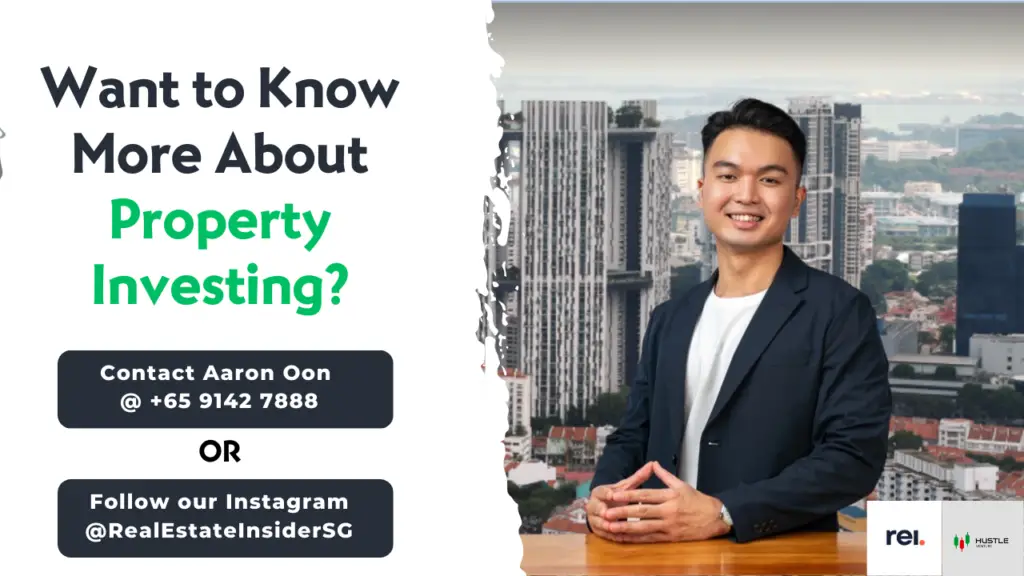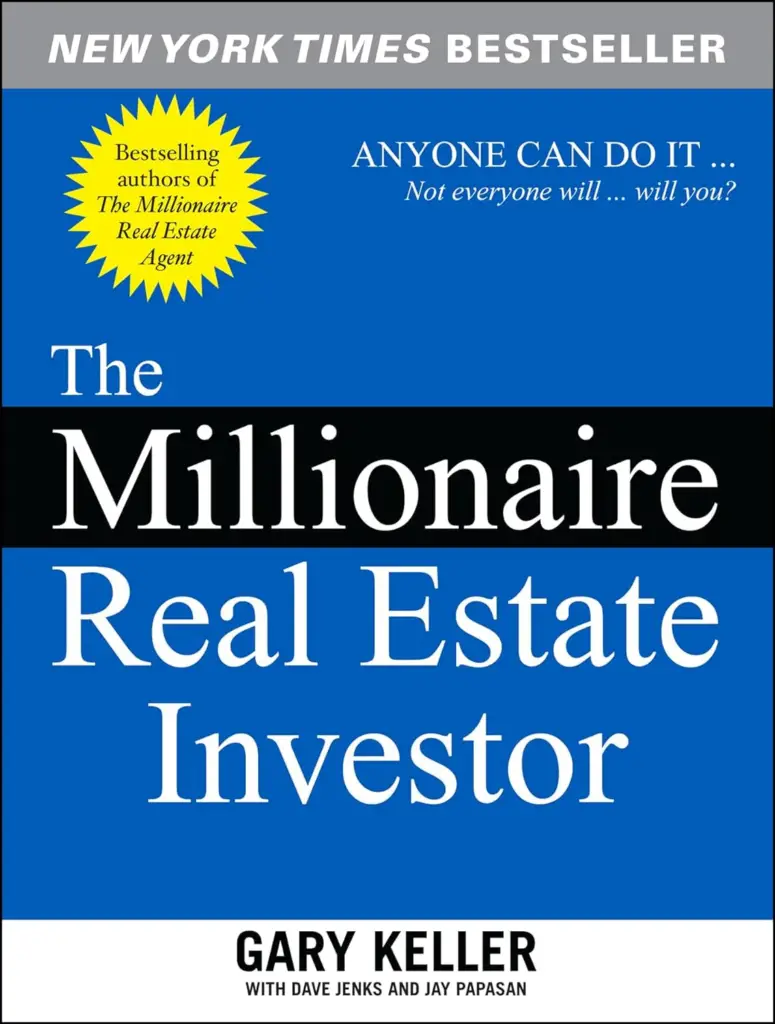Becoming a property agent in Singapore is an exciting career choice that offers the potential for significant personal and financial growth. If you are also someone who loves to look at houses and see the potential of wealth generation and preservation.
This career is for you!
This article aims to guide aspiring property agents through the essential steps and considerations required to enter and succeed in the real estate industry in Singapore. From understanding the unique real estate landscape to acquiring the necessary qualifications, and from building a robust network to mastering critical skills, we’ll explore what it takes to navigate this dynamic field effectively.
Key Takeaways
- Familiarize yourself with the Singapore property market and its regulatory framework to ensure compliance and informed decision-making.
- Obtain the required educational credentials and pass the professional licensing examination to become a certified property agent.
- Select a reputable real estate agency that aligns with your career goals and invest in building a strong network of industry contacts.
- Develop essential skills such as negotiation, communication, and understanding of financial and legal aspects to enhance your effectiveness as a property agent.
- Prepare to navigate market challenges and uphold ethical standards to maintain a positive reputation and achieve long-term success in the real estate industry.
How To Be A Property Agent

Singapore’s property market is a dynamic and significant sector of the nation’s economy, characterized by its resilience and innovative developments. In the first six months of 2024, property prices are anticipated to remain high yet stable.
What’s more, demand for residential properties continues to be robust, reflecting the city-state’s strong economic fundamentals and its status as a desirable location for both local and international investors.
The market outlook for 2024 suggests a steady influx of new units, with property firms projecting between 8,000 to over 11,000 new units. And here is the list of properties launching in 2024.
| No. | Project Name | Region | Location | District | Tenure | Est. No. of Unit |
|---|---|---|---|---|---|---|
| 1 | TBC (Marina Gardens Lane GLS) | CCR | Marina Lane | 1 | 99 LH | 790 |
| 2 | Marina View Residences | CCR | Maina View | 1 | 99 LH | 683 |
| 3 | Newport Residences | CCR | Anson Road | 2 | FH | 246 |
| 4 | Former Peace Centre | CCR | Sophia Road | 9 | 99 LH | 240 |
| 5 | Skywaters Residences | CCR | Shenton Way | 1 | 99 LH | 215 |
| 6 | 21 Anderson | CCR | Anderson Road | 10 | FH | 18 |
| 7 | 32 Gilstead Road | CCR | Gilstead Road | 11 | FH | 14 |
| 8 | Former Kew Lodge | CCR | Kheam Hock Road | 11 | FH | TBC |
| 9 | TBC (Jalan Tembusu GLS) | RCR | Jalan Tembusu | 15 | 99 LH | 840 |
| 10 | TBC (Lorong 1 Toa Payoh GLS) | RCR | Lorong 1 Toa Payoh | 12 | 99 LH | 800 |
| 11 | TBC (Pine Grove GLS) | RCR | Pine Grove | 21 | 99 LH | 565 |
| 12 | Former Central Mall / Central Square | RCR | Havelock Road | 1 | 99 LH | 366 |
| 13 | Former Meyer Park | RCR | Meyer Road | 15 | 99 LH | 230 |
| 14 | The Arcady at Boon Keng | RCR | St. Barbabas Lane | 12 | FH | 172 |
| 15 | TBC (Bukit Timah Link GLS) | RCR | Bukit Timah Link | 21 | 99 LH | 160 |
| 16 | The Hill @ One-North | RCR | Slim Barracks Rise | 5 | 99 LH | 142 |
| 17 | Former La Ville | RCR | Tanjong Rhu Road | 15 | FH | 107 |
| 18 | Keppel Bay Plot 6 | RCR | Keppel Island | 4 | 99 LH | 86 |
| 19 | The Hilshore | RCR | Pasir Panjang Road | 5 | FH | 59 |
| 20 | Ardon Residence | RCR | Haig Road | 15 | FH | 35 |
| 21 | Former Golden Mile Complex | RCR | Beach Road | 7 | 99 LH | TBC |
| 22 | TBC (Tampines Avenue 11 GLS) | OCR | Tampines Avenue 11 | 18 | 99 LH | 1,190 |
| 23 | Former Chuan Park | OCR | Lorong Chuan | 19 | 99 LH | 900 |
| 24 | Lentor Mansion | OCR | Lentor Gardens | 26 | 99 LH | 533 |
| 25 | TBC (Clementi Avenue 1 GLS) | OCR | Clementi Avenue 1 | 5 | 99 LH | 501 |
| 26 | TBC (Lentor Central GLS) | OCR | Lentor Central | 16 | 99 LH | 475 |
| 27 | SORA | OCR | Yuan Ching Road | 22 | 99 LH | 440 |
| 28 | TBC (Champions Way GLS) | OCR | Champions Way | 25 | 99 LH | 350 |
| 29 | Hillhaven | OCR | Hillview Rise | 23 | 99 LH | 341 |
| 30 | Kassia | OCR | Flora Drive | 17 | FH | 276 |
| 31 | Lentoria | OCR | Lentor Hill Road | 26 | 99 LH | 267 |
| 32 | Former Bagnall Court | OCR | Upper East Coast Road | 16 | FH | 113 |
| 33 | (EC) Lumina Grand | OCR | Bukit Batok West Avenue 5 | 23 | 99 LH | 496 |
This data given is a good reassurance that there are investors and developers interested to making profits here in Singapore. As a property agent, the goal is to be the bridge and help sell properties.
This indicates a vibrant market with ample opportunities for property agents to engage with potential buyers and sellers. Leveraging data from sale and rental listings is crucial for understanding market trends and providing meaningful insights to clients.
The process of buying property in Singapore involves thorough research of listings, engaging with knowledgeable agents, and a clear understanding of the legal requirements. Navigating the buying process effectively is essential for a successful investment.
Agents must stay informed about the latest market developments and be prepared to adapt to the evolving landscape. With the right approach, property agents can capitalize on the current market conditions to build a successful career in real estate.
Regulatory Framework for Property Agents
In Singapore, the real estate profession is tightly regulated to maintain high standards of practice and to protect the interests of consumers. The Council for Estate Agencies (CEA) is the statutory board responsible for the oversight of property agents, ensuring that they are well-qualified and adhere to a strict code of ethics and professional conduct.
To become a licensed property agent, individuals must undergo a rigorous process which includes passing a professional licensing examination. The table below outlines the key components of the licensing process:
| Step | Requirement |
|---|---|
| 1 | Minimum educational qualifications |
| 2 | Completion of the Real Estate Salesperson (RES) course |
| 3 | Passing the CEA’s licensing examination |
| 4 | Registration with a licensed estate agency |
| 5 | Continuing Professional Development (CPD) |
The licencing process ensures that agents are knowledgeable, competent, and adhere to the regulations set by the CEA.
Agents are also required to be transparent about their commission rates and to avoid real estate investment pitfalls such as misleading profitability calculations and hidden negative factors.
The regulatory framework in Singapore is designed to ensure fairness and transparency in property transactions, which is crucial for maintaining the integrity of the real estate market.
Key Players in the Real Estate Industry
The real estate industry in Singapore is a dynamic ecosystem with various key players that drive the market. Real estate agencies stand at the forefront, facilitating transactions and providing guidance to both buyers and sellers.
Among these, certain individuals and companies have established themselves as influential figures. For instance, Aaron Oon, a Senior Associate Director at Propnex and Founder of Real Estate Insider, is known for sharing valuable market updates and trends that shape the industry.
Aaron Oon is a Senior Associate Director at Propnex and Founder of Real Estate Insider. A consistent Top Producer in the competitive world of real estate, Armed with a Finance degree from NUS, Aaron is more than just a real estate agent; he’s a strategic thinker and a creative problem solver.
If you are looking to invest in a property here in Singapore or would like to know more about Singapore’s property market. Be sure to reach out through the Calendy video link below:

Investors and homebuyers in Singapore must navigate a landscape that includes not only agencies but also developers, legal firms, and financial institutions. These entities offer a range of services from legal advice to financing options, such as cash, CPF, and bank loans.
The market is characterized by its stability and the presence of investment opportunities, with considerations varying between resale properties and new launches. Those new to the market must seek experienced real estate agents who can provide professional advice tailored to their budget and investment goals.
The real estate sector in Singapore presents a significant decision for investors due to high property prices. Beginners should conduct thorough research, save for a down payment, and seek guidance before entering the market. While $5,000 may not be sufficient to start investing, there are various options available that offer high rental yield and capital appreciation potential.
For those considering real estate as a side hustle, the Singapore market offers flexibility, additional income, and opportunities for skill development and networking. Success in this arena hinges on strong communication skills, persistence, adaptability, and a customer-focused approach.

Looking to start investing, why not try Tiger Broker?
Tiger Brokers offers competitive commission fees for trades across different markets.
It is also practically fee-less in these aspects: no custody fees, deposit (or withdrawal) fees, currency exchange fees, inactivity fees, or account maintenance fees to contend with!
Qualifications & Licensing Requirements

To embark on a career as a top property agent in Singapore, one must first meet certain educational prerequisites. To be eligible for the course, individuals must be:
- Must be a Singaporean or a Singaporean Permanent Resident (SPR) for more than 10 years
- Must be 21 years old and above
- Must have a minimum of 4 ‘O’ level passes or equivalent
- Fulfill CEA fit & proper criteria
- Achieve a 75% attendance rate to qualify for the examination
This foundational requirement ensures that all aspiring agents have a basic level of education before entering the profession.
The educational criteria serve as a gateway to the Real Estate Salesperson (RES) examination, which is a mandatory step for those seeking to become licensed property agents. The Council for Estate Agencies (CEA) oversees the licensing process and stipulates that candidates must meet these educational standards before registering for the RES exam.
- Check that you fulfill the criteria to become a property agent
- Apply for the Real Estate Salesperson Examination
- Ensure you meet the minimum educational requirement
It is important to note that candidates with a partial pass must complete the remaining paper(s) within the 2-year timeframe.
Upon passing, candidates must apply for salesperson registration through a licensed estate agent within 2 years of the issuance of the final results.
To get started, you can apply through CEA with the link here:
Professional Licensing Examination
To become a licensed property agent, passing the Real Estate Salesperson (RES) examination is a crucial step. This examination ensures that candidates are well-versed in the necessary knowledge, skills, and ethical practices required in the real estate industry.
- Enroll in an accredited Real Estate Agency (REA) training course.
- Complete the course curriculum and prepare for the RES exam.
- Register for the exam with the Council for Estate Agencies (CEA).
- Pass the exam to qualify for applying for a property agent license.
The RES exam is not just a test of knowledge but a gateway to a rewarding career in real estate. It is essential to approach the exam with dedication and a clear understanding of the real estate market dynamics.
Staying informed about the latest trends and news in the property market can be beneficial for the examination preparation. Aspiring agents are encouraged to utilize resources like Google News to keep abreast of the latest Singapore property news.
Continuing Professional Development
After securing your real estate license, the journey doesn’t end there.
Continuing Professional Development (CPD) is a mandatory requirement for all practicing property agents in Singapore. CPD courses are designed to keep agents up-to-date with the latest industry knowledge, ensuring that they remain competent and professional in their field.
The Council for Estate Agencies (CEA) oversees the CPD framework, which includes a variety of courses covering topics such as ethical standards, laws, and regulations relevant to the Singapore property market. Agents are required to complete a certain number of CPD hours annually to maintain their license.
CPD is not just about fulfilling a quota; it’s an opportunity for personal and professional growth, allowing agents to refine their skills and stay ahead in a competitive market.
Providers of CPD courses must adhere to strict guidelines and obtain approval from the CEA, ensuring that the courses offered meet the high standards expected by the industry. This ensures that agents receive a quality education that is directly applicable to their day-to-day operations.
Building Your Real Estate Career

Joining the right property agency can make a significant difference in the trajectory of your real estate career. As a new agent, you’ll want to align yourself with an agency that not only provides robust support and training but also aligns with your personal values and career goals.
Research and identify reputable real estate agencies in Singapore, considering their market presence, agent support systems, and commission structures.
- Market Presence: Look for agencies with a strong track record and positive client feedback.
- Agent Support: Evaluate the training, resources, and mentorship opportunities available.
- Commission Structure: Understand the financial aspects, including commission splits and potential earnings.
Choosing an agency is more than just a business decision; it’s about finding a professional home where you can grow and succeed.
Keep in mind the competitive nature of the industry. With over 1,500 property agencies and thousands of agents, standing out requires not only hard work but also strategic thinking. Incorporate digital marketing strategies such as storytelling with visuals and social media engagement to enhance your visibility in the market.
Developing a Network of Contacts
In the competitive field of real estate, developing a robust network of contacts is crucial for a property agent’s success. This network should include not just potential clients but also fellow property agents, industry professionals, and service providers.
To start building your network, consider the following steps:
- Attend industry events and seminars to meet peers and learn about the latest market trends.
- Join real estate forums and online communities to exchange knowledge and experiences.
- Utilize social media platforms, like LinkedIn, to connect with industry professionals and showcase your expertise.
- Collaborate with other agents to expand your reach and learn from their experiences.
Remember, the quality of your connections often matters more than the quantity. A few strong relationships can lead to more referrals and opportunities than numerous superficial contacts.
Regularly engaging with your network and providing value to your contacts will help you stay top of mind. Whether it’s sharing market insights or offering assistance, every interaction is an opportunity to reinforce your professional relationships.
Marketing Yourself as a Property Agent
In the competitive world of real estate, marketing yourself effectively is crucial to standing out. Begin by crafting a unique value proposition that highlights your strengths and specialties. Consider the following steps to enhance your visibility:
- Develop a professional online presence with a dedicated website and active social media profiles.
- Utilize digital marketing strategies such as SEO, content marketing, and targeted ads.
- Engage with your community through local events, sponsorships, and partnerships.
Remember, consistency in your marketing efforts is key to building a strong personal brand.
Networking with other professionals and seeking mentorship can also provide valuable insights and opportunities. Always focus on delivering exceptional service to your clients, as word-of-mouth referrals are incredibly powerful in this industry.
Looking for marketing services to help you boost awareness?
Here at HustleVenture, we are a finance and side hustle newsletter business. So if you are reading this, chances are, we can help you grow your side hustle/business through some of our online services such as:
- SEO writing [Popular⭐]
- Web design
- Videography [Singapore Only]
- Advertising [Popular⭐]
- Copywriting
- Guest post promotion
These are just some ways we can do to promote your business/side hustle. Interested to know more, be sure to schedule a Zoom call with us down below!

Essential Skills for Success

Negotiation and Communication
In the realm of real estate, effective negotiation and communication are paramount. As a property agent, your ability to articulate the benefits of a property, understand the needs of your clients, and negotiate terms that satisfy all parties involved can make or break a deal.
- Mastering the art of persuasion is crucial for successful negotiations.
- Clear and concise communication ensures that clients’ concerns are addressed and that information is conveyed without ambiguity.
- Active listening skills enable agents to truly understand and respond to the needs of their clients.
The ability to negotiate and communicate effectively is not just about speaking well; it’s about understanding the psychology of buying and selling and adapting to different personalities and situations.
Agents must also be adept at managing expectations and mediating conflicts to ensure that transactions proceed smoothly. This involves setting realistic goals, being transparent about the process, and maintaining a professional demeanor at all times.
Understanding Financial and Legal Aspects
To excel being a property agent in Singapore, a deep understanding of financial and legal aspects is crucial. This knowledge not only helps in advising clients on the best investment decisions but also ensures compliance with the regulatory framework, such as the Estate Agents Act, which outlines the duties of an estate agent.
- Familiarity with mortgage financing, taxes, and insurance is essential.
- Recognizing the implications of property laws and regulations can safeguard both the agent and the client.
- Staying updated with the latest market trends and legal changes is a continuous requirement.
Success in real estate hinges on the ability to create personalized plans for clients, encompassing wealth management and tax strategies. This demands a skill set that is analytical, client-centric, and grounded in ethical conduct.
Understanding the financial nuances, from the glamour of property agent commissions to the complexities of investment portfolios, is part of the journey to becoming a great agent. Agents must also be adept at blogging and content creation, as these are powerful tools for marketing and wealth building.

Want to take it a step further and level up your knowledge about real estate and possibly guide people into making good property investments?
“The Millionaire Real Estate Investor” is a New York Times best-selling book and has been around for quite some time now for its universal knowledge in real estate investing applications.
Interested to know more?
Leveraging Technology in Real Estate
The role of technology in reshaping the real estate sector cannot be overstated. In Singapore, the emergence of Property Technology (PropTech) startups has revolutionized the way agents, buyers, and sellers interact.
AI tools like AskProp enhance property searches, market analysis, virtual tours, price estimations, and property management. AI is set to disrupt the industry with efficiency and data analysis, transforming interactions between humans and machines.
Embracing technology is not just an option but a necessity for property agents who wish to remain competitive in Singapore’s dynamic real estate market.
Proptech is also revolutionizing how properties operate, accelerating the smart building concept. Smart buildings use advanced technologies to monitor, control, and optimize building operations. This not only improves the efficiency of property management but also offers a more personalized experience for residents.
The following list highlights some of the most significant real estate technology trends:
- Automated property management systems
- Virtual reality home tours
- AI-based data on buyer behavior
These innovations are evidence that the real estate industry is leveraging technology not just for operational efficiency but also to enhance the customer experience.
Challenges and Ethical Considerations

While some agents may convince you that the real estate market is an evergreen business. Sad to say this isn’t always the case.
Real estate agent income can fluctuate greatly based on where the news and global information data are shared. Risk is always there for all self-employed agents, but learning to take calculated risks keeps you secure.
Dealing with Market Fluctuations
In the dynamic landscape of Singapore’s real estate market, property agents must be adept at navigating market fluctuations. These fluctuations can be driven by a variety of factors, including economic cycles, policy changes, and global events, impacting property prices and demand.
To remain resilient, agents should:
- Stay informed of the latest market trends and forecasts.
- Analyze historical data to anticipate future market movements.
- Maintain a diverse portfolio to balance risks.
It’s crucial for agents to set clear and specific goals, adapting their strategies to align with the current market conditions while keeping long-term objectives in perspective.
Understanding the cyclical nature of the real estate market and preparing for its ups and downs can help agents maintain a steady course. By doing so, they can ensure their career’s longevity and success, even when facing the inevitable ebbs and flows of the property market.
Ethical Practices in Real Estate Transactions
In the realm of real estate transactions, ethical practices are paramount. Agents must navigate a complex web of responsibilities, ensuring that they act in the best interests of their clients while adhering to legal standards.
The Singapore Estate Agents Association (SEAA) plays a crucial role in this regard. By fostering a culture of vigilance and promoting ethical practices, the SEAA aims to safeguard the interests of both property agents and their clients.
The Council for Estate Agencies (CEA) provides a regulatory and enforcement framework that is essential for maintaining professional standards within the industry. Upholding these standards is not just about compliance; it’s about building trust and ensuring a fair and transparent property market.
When considering working with a broker, it’s important to weigh the benefits, such as a wider buyer pool and market insights, against the potential impact on return on investment due to commission fees. This decision should be made with a clear understanding of the pros and cons.
Managing Client Expectations and Disputes
In the dynamic world of real estate, managing client expectations and resolving disputes is crucial for maintaining a reputable practice. Agents must be adept at setting realistic expectations from the outset to prevent misunderstandings that can lead to dissatisfaction or legal challenges.
When disputes arise, it’s important to approach them with a clear strategy. Here are some steps to consider:
- Communicate proactively to understand the client’s concerns.
- Review the facts and any contractual agreements involved.
- Explore all possible solutions, including mediation or other forms of Alternative Dispute Resolution (ADR).
- Keep detailed records of all communications and decisions.
In the face of challenges, remember that the goal is to find a resolution that respects the interests of all parties involved. This often requires patience, empathy, and a thorough understanding of the legal and financial aspects of the transaction.
Agents should also be aware of the latest industry practices and legal precedents that could impact how disputes are handled. For instance, a recent case, [2023] SGHC 344, highlights the emotional and financial turmoil that can ensue when trust is broken in property transactions. Staying informed can help agents navigate these complex situations with greater confidence and professionalism.
Are you excited to be an agent?
Embarking on a career as a property agent in Singapore can be a rewarding journey, offering the potential for personal growth and financial success. By understanding the regulatory framework, acquiring the necessary qualifications, and honing your skills in marketing and client relations, you can set a strong foundation for your career.
Remember, success in real estate hinges on your ability to build trust with clients, stay informed about market trends, and continuously adapt to the dynamic landscape of the property market. With dedication, perseverance, and a commitment to professional development, you can thrive as a property agent in Singapore’s vibrant real estate industry.

Want to take it a step further and level up your knowledge about real estate and possibly guide people into making good property investments?
“The Millionaire Real Estate Investor” is a New York Times best-selling book and has been around for quite some time now for its universal knowledge in real estate investing applications.
Interested to know more?
Frequently Asked Questions
What qualifications do I need to become a property agent in Singapore?
To become a property agent in Singapore, you must have a minimum educational qualification of 4 GCE ‘O’ Level passes or equivalent. Additionally, you need to pass the Real Estate Salesperson (RES) examination or have equivalent qualifications recognized by the Council for Estate Agencies (CEA).
How do I obtain a property agent license in Singapore?
After meeting the educational requirements, you must pass the RES examination, then register with a licensed real estate agency and apply for a salesperson registration with the CEA. You will also be required to attend a mandatory professional development programme.
Can I practice as a property agent without a license?
No, practicing as a property agent without a valid license is illegal in Singapore. You must be registered with the CEA and affiliated with a licensed real estate agency.
How can I choose the right real estate agency to work with?
When choosing a real estate agency, consider factors such as the agency’s reputation, the training and support they offer, their market presence, and their commission structure. It’s also important to align with an agency whose values and business model resonate with your personal goals.
What are some essential skills I need to succeed as a property agent in Singapore?
Key skills for success include strong negotiation and communication abilities, a good understanding of financial and legal aspects of property transactions, and the ability to leverage technology for marketing and operations. Being proactive in networking and maintaining client relationships is also crucial.
How do property agents in Singapore cope with market fluctuations?
Property agents can cope with market fluctuations by staying informed about market trends, diversifying their portfolio of services, focusing on long-term client relationships, and adapting their marketing strategies. Continuous learning and flexibility in business approaches are essential to navigate through different market conditions.





